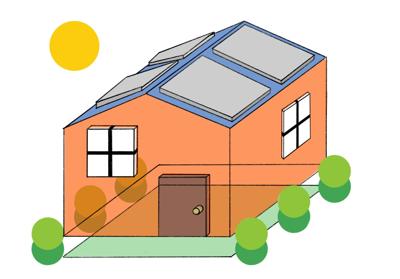The Eugene City Council is moving closer to requiring a home energy score for home sellers after passing three motions on the issue at a Nov. 17 work session. Eugene would be the fourth city in Oregon to pass the requirement, behind Milwaukie, Hillsboro and Portland.
A home energy score rates how energy efficient a home is by taking into account its physical characteristics like window type, heating and cooling systems, square footage and level of insulation, according to the work session’s agenda.
“I really like moving forward on other ideas besides the Northwest Natural franchise agreement, which seems like that’s all we’ve been talking about for the past two years,” Councilor Alan Zelenka said. “It’s good to see us move forward on some really important initiatives.”
For the past two years, the city of Eugene has engaged in unsuccessful negotiations with Northwest Natural, a natural gas company which had a 20-year franchise agreement with the city of Eugene that expired in 2019.
If the council passes the home energy score requirement, sellers of residential, single-family homes will have to obtain and disclose an energy performance rating from a state-certified assessor prior to publicly listing the home for sale and include the rating in sale listings.
The proposed program is meant only to increase transparency and encourage efficiency upgrades and does not require any efficiency upgrades, according to the agenda.
The first motion, proposed by Councilor Jennifer Yeh, directed City Manager Sarah Medary to complete a community engagement process, as well as schedule a work session to share feedback from that process and develop the framework of a draft ordinance. The motion passed unanimously, but councilors did bring up concerns.
Councilor Matt Keating said renters are noticeably absent from the motion, and he supports applying the requirement to rental units as well as single-family homes. Councilor Randy Groves said he also supports including renters, which make up 52% of Eugene’s population.
Councilor Mike Clark said he is concerned that adding a required expense would fall back on the person purchasing or renting a home and worsen the housing crisis in Eugene.
In other Oregon communities, obtaining a home energy score costs between $150 and $300, city of Eugene Sustainability Manager Chelsea Clinton said. The average cost per score in Portland is $125, according to the agenda.
Councilor Claire Syrett said a home energy score may result in a net gain in savings for buyers.
“It needs to be considered in the context of all the additional costs we are all bearing because of climate change,” Syrett said. “Allowing a potential buyer to understand the energy cost of a particular home they are considering allows them to make a wiser choice and understand up front the cost they might face.”
Clark said Syrett’s comment about savings made sense to him.
The council unanimously passed two other motions: one to direct the city manager to bring back an implementation plan including potential funding sources for the mandatory home energy score program, and another directing the city manager to develop additional home energy score program options for renters. The program for renters must be in alignment with Climate Action Plan 2.0 Action B3, which requires the city to report to the city council options and funding strategies to support programs for low income Eugene Water and Electric Board or Northwest Natural customers.
The proposed energy score program’s cost to the city as well as other actions that support the Climate Recovery Ordinance and Climate Action Plan 2.0 is estimated at $130,000, according to the agenda.
Although the proposed home energy score requirement does not apply to rental units yet, the city of Eugene funds the Score Program with the University of Oregon and EWEB, which offers free, voluntary home energy scores to both renters and property owners.

